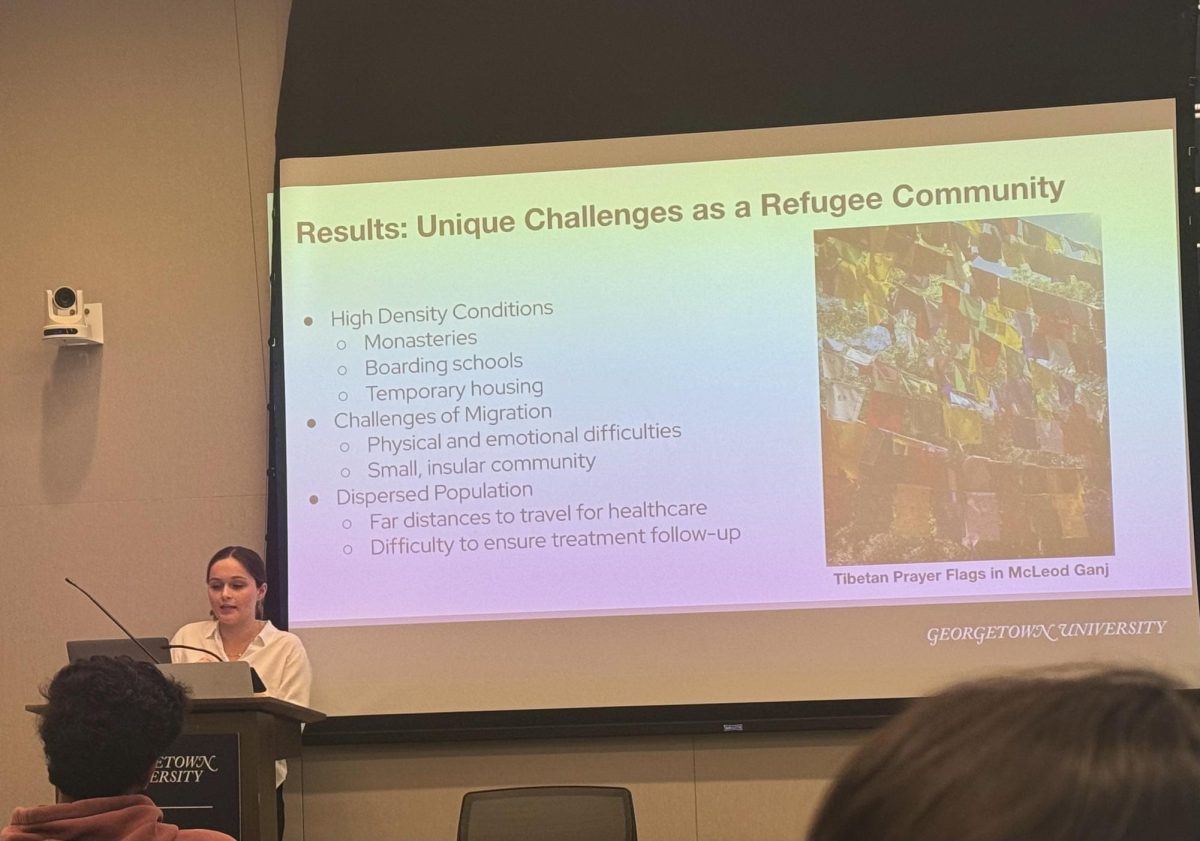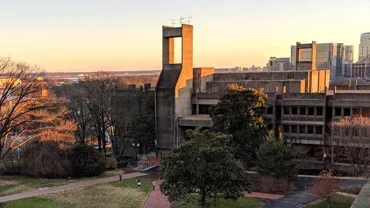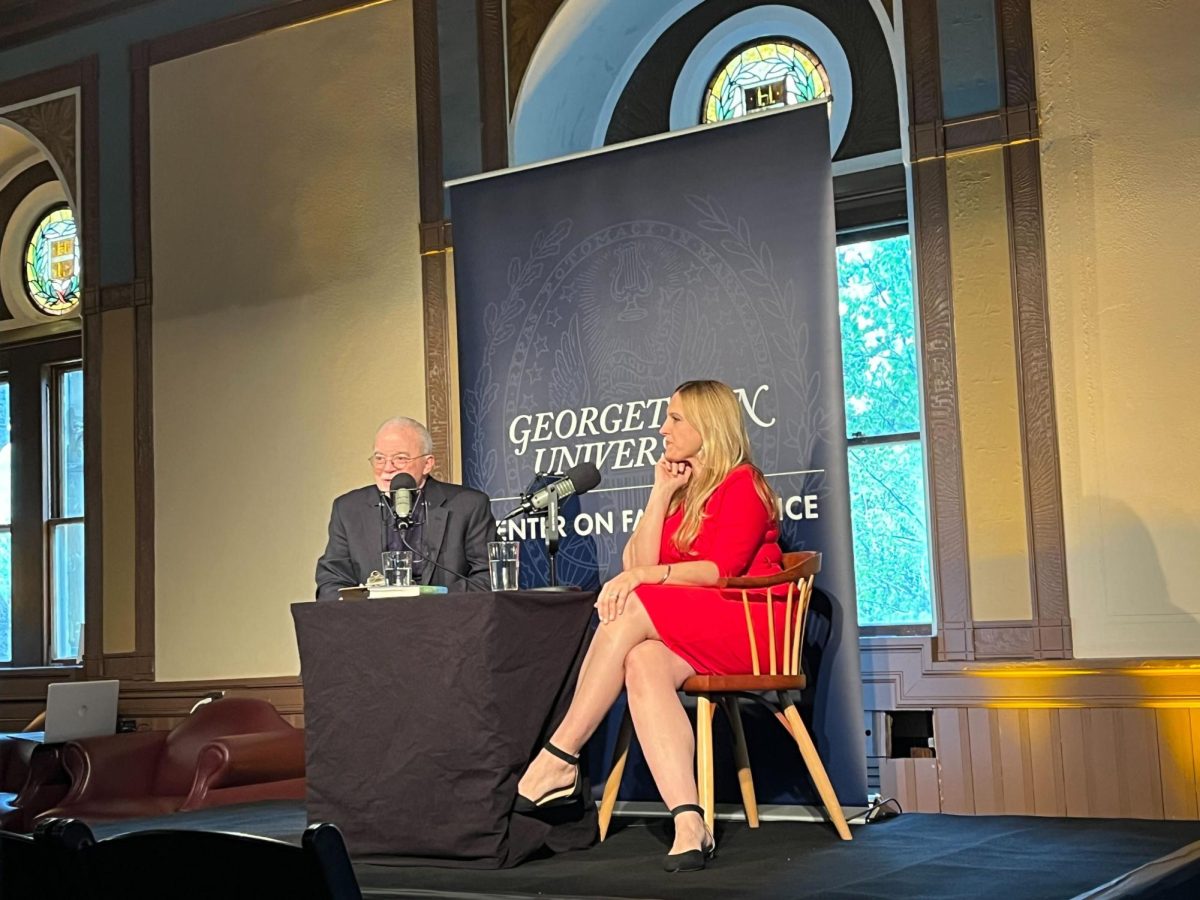Georgetown University’s current system of processing and implementing student input regarding academic curricula is ineffective. By assembling a semesterly forum for student input with a review board of diverse deans and faculty, the university will be better equipped to address community concerns.
Georgetown recognizes the value of student voices, as evidenced by the disparate systems designed to absorb input, such as the Academic Councils of each school and department chairs.
However, when it comes to acting on student input on academic curricula, Georgetown has a spotty track record. In 2015, the university finally added a one-course diversity requirement to the core curriculum across all four schools — 24 years after the student-led push began.
This editorial board joined Daniel Byman, dean of the School of the Foreign Service, in supporting the movement behind one-credit language courses, meant to allow students to practice a language they speak conversationally. Despite student and administrator support, the plan has been held up by faculty on thoroughly unconvincing grounds.
Most recently, an op-ed published in The Hoya documented the bureaucratic burden faced by its author, Aly Panjwani (SFS ’19). In the op-ed and previously in a meeting with Byman, Panjwani requested a current Georgetown course, which he believes is promoting discriminatory surveillance strategies on Muslim communities, be cancelled.
Panjwani’s concerns were listened to but rejected without a sufficient explanation. In his op-ed, he wrote, “Dean Byman did not explain why, despite the concerns we raised, the class was still being carried out.”
Under current policy, students can bring concerns to a dean, as Panjwani did, or their college’s Academic Council, alongside a smattering of officers and assemblies designated primarily for purposes other than receiving student input. The intent of this system is good, but it yields little action; in Panjwani’s case, he was not even provided the full reasoning of why his request was denied.
Georgetown’s history and current environment of dismissing or delaying student suggestions for academic curricula, coupled with an ineffective system for responding to concerns, is troubling.
The Main Campus Executive Faculty, a legislative body responsible for approving new academic policy, includes two student representatives. However, the group is not obliged to receive input from the larger student body, and is also responsible for many other aspects of Georgetown’s academic environment, such as the condition of faculty life.
To prioritize student voices regarding course offerings, the university should provide a universitywide forum — attended by a review board that offers diversity of race, academic discipline, geography and gender — for responding to grievances about current course offerings and expressing interest in new ones.
The forum would allow students to both air concerns about existing courses and call for new courses, clusters and requirements. The forum would occur every semester and be accessible to all students and community members, who would have an open invitation to air their relevant grievances.
The process of adding or cancelling a course should not be easy. However, the process of considering and implementing student suggestions should be.
To ensure administrators are hearing student concerns directly, the forum should be a function of the Office of the Provost and include a board of faculty and deans from each school, as courses often fall under the purview of multiple schools.
The forum’s review board should review courses brought to administrative attention after each semesterly forum. The board, which would make recommendations to each department or school, must reflect a diversity of experiences and disciplines, as its oversight would likely include a broad array of problematic issues reflected in curricula. To make sure student frustrations are responded to substantively, the board would be dedicated to a full investigation of the most important claims students make relative to academic curricula.
Administrators must listen to the voices of students frustrated with Georgetown’s schedule of classes. Student input is valuable and student concerns are valid; we are the individuals with the closest awareness of what is taught on campus.
If Georgetown wants to ensure the best possible academic setting for its students, it should welcome a forum dedicated to maintaining a balance of perspectives on curricular issues.
The Hoya’s editorial board is composed of six students and is chaired by the Opinion Editor. Editorials reflect only the beliefs of a majority of the board and are not representative of The Hoya or any individual member of the board.













